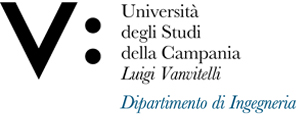Marco COSTANZO
Insegnamento di AUTOMAZIONE INDUSTRIALE E PROGRAMMAZIONE DEI ROBOT
Corso di laurea magistrale in INGEGNERIA INFORMATICA
SSD: ING-INF/04
CFU: 9,00
ORE PER UNITÀ DIDATTICA: 72,00
Periodo di Erogazione: Secondo Semestre
Italiano
| Lingua di insegnamento | ITALIANO |
| Contenuti | Automazione Industriale (3 CFU): |
| Testi di riferimento | P. Chiacchio, F. Basile, Tecnologie informatiche per l'automazione, McGraw-Hill Education |
| Obiettivi formativi | Automazione Industriale (3 CFU): |
| Prerequisiti | Sono importanti conoscenze di teoria dei sistemi e controlli automatici, di Robotica, di elettronica e teoria dei segnali. Inoltre, sono importanti conoscenze di programmazione ad oggetti e preferibilmente la conoscenza dei linguaggi di programmazione C++, Java o Python. |
| Metodologie didattiche | Lezione frontale |
| Metodi di valutazione | Esame orale |
| Altre informazioni | Verranno forniti pacchetti software per la simulazione. |
| Programma del corso | Automazione Industriale (3 CFU): |
English
| Teaching language | Italian |
| Contents | Industrial Automation (3 CFU): |
| Textbook and course materials | P. Chiacchio, F. Basile, Tecnologie informatiche per l'automazione, McGraw-Hill Education |
| Course objectives | Industrial Automation (3 CFU): PLC and industrial controllers programming in ladder and SFC |
| Prerequisites | Knowledge of system theory and automatic control is relevant, as well as Robotics, electronics, and signal theory. |
| Teaching methods | The course includes both lessons and laboratory practice. |
| Evaluation methods | Oral examination |
| Other information | Simulation software packages will be provided. |
| Course Syllabus | Industrial Automation (3 CFU): |








